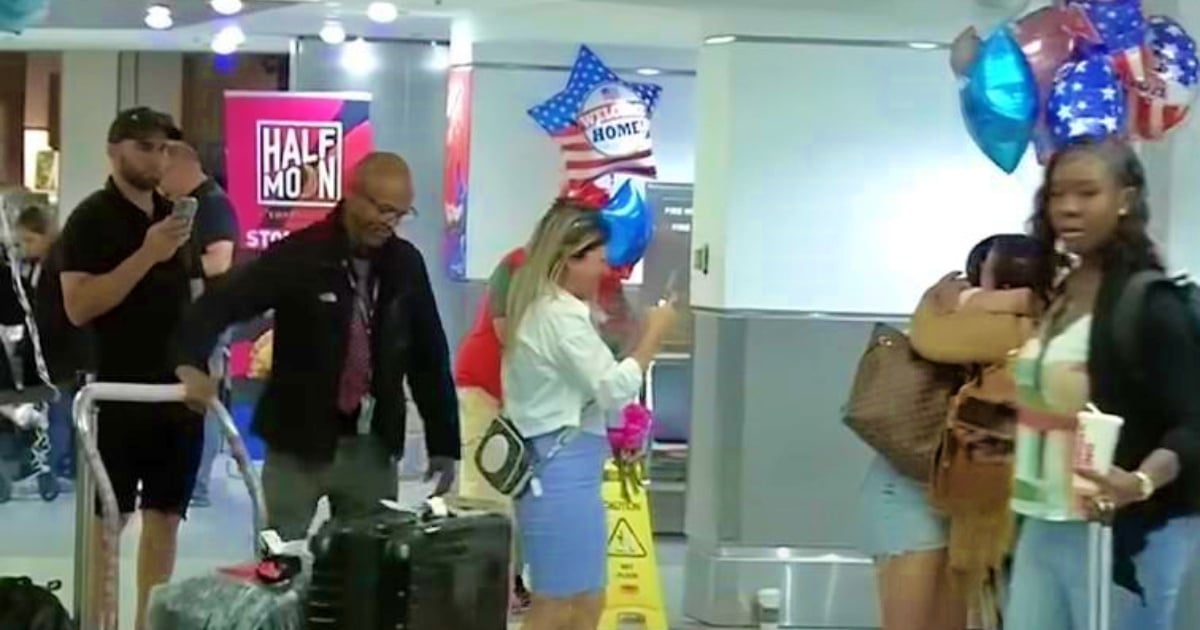Republican politicians in the United States have responded to the temporary suspension of travel permits for the humanitarian parole program for Cuba, Venezuela, Nicaragua, and Haiti by demanding a permanent closure of the program.
"It needs to be shut down permanently," wrote House Speaker Mike Johnson, a Republican from Louisiana, on X. "This program should never have existed in the first place. It’s just another way the Biden-Harris administration has welcomed hundreds of thousands of foreigners into our country without oversight," he added.
"Anyone surprised? More evidence of another failed border policy by Biden and Harris. The only surprising thing is that they are admitting it," reacted Senator Cindy Hyde-Smith, a Republican from Mississippi.
Even more critical was former Florida Governor Rick Scott. "Now we have proof that Biden and Harris were bringing illegal immigrants into our communities without even checking who they are. The 'border czar' Harris not only failed to secure our border, she allowed massive fraud, waste, and abuse to let criminals and terrorists into our communities," Scott wrote on X. "This report is terrifying for all Americans," concluded the Republican.
"Permanently shut down the illegal CHNV parole program and deport all illegal immigrants, especially those the Biden/Harris regime has let in through this scheme," wrote Eric Burlison, a Republican from Missouri, on the same social media platform.
House Homeland Security Committee Chairman Mark Green, a Republican from Tennessee, said the report "validates every warning" ever issued about what he called an "illegal program." "It also exposes the lie of administration officials, like the now-ousted DHS Secretary Mayorkas, about the quality and scope of the vetting process, not just for inadmissible foreigners seeking entry, but also for those attempting to sponsor them," Green continued.
"Last year, we issued a subpoena to demand documents related to this program, and while DHS partially complied, the department continues to fail to present certain documents and communications related to the program," he concluded.
Republican politicians have long expressed their discontent with the humanitarian parole program. Although a group of Republican states filed a lawsuit against the program, a district judge dismissed it earlier this year.
After more than 48 hours of uncertainty and concern, on Monday, a group of Cubans with travel permits to enter the U.S. under the humanitarian parole granted before the suspension announced on Friday were able to board their flights.
On Sunday, a spokesperson for the Department of Homeland Security (DHS) confirmed that travel would be allowed for beneficiaries of the humanitarian parole who had an approved and valid travel permit. Authorities also added that they were working with interested parties, including airlines and sponsors, to resolve some issues as soon as possible.
The clarification came after program beneficiaries with reserved flights on American Airlines, Southwest, and other airlines were stranded on August 3 in Cuban airports when the airlines did not allow them to board the flights.
Temporary Suspension of Travel Permits for Humanitarian Parole Beneficiaries
On August 2, the U.S. government temporarily froze travel permits for beneficiaries of the humanitarian parole program following an internal report revealing significant levels of fraud, according to a Fox News report citing a DHS spokesperson.
The government source indicated that "as a precaution," they have suspended the issuance of advance travel authorizations for the program since mid-July while they proceed to thoroughly review sponsor applications, which is where the focus of the fraud lies.
CBP stopped issuing travel authorizations to Venezuelans on July 6 and to Cubans, Nicaraguans, and Haitians since July 18. Authorities indicated they would resume processing as soon as possible "with appropriate safeguards," although they did not provide a probable date for the return of travel permit issuance.
By the end of June, 106,757 Cubans had benefited from the program, and about 104,130 had already traveled to the United States, according to official CBP figures.
FAQs on the Suspension of Humanitarian Parole Program
In light of the recent suspension and the calls for a permanent end to the humanitarian parole program, here are some frequently asked questions to provide clarity on the matter.
What led to the temporary suspension of the humanitarian parole program?
The suspension was prompted by an internal report revealing significant levels of fraud in the program, particularly in the sponsor application process.
Which countries are affected by the suspension of the humanitarian parole program?
The suspension affects Cuba, Venezuela, Nicaragua, and Haiti.
Are beneficiaries with approved travel permits still allowed to enter the U.S.?
Yes, beneficiaries with approved and valid travel permits are still allowed to enter the U.S.
What are the next steps for the humanitarian parole program?
The authorities are working to review the sponsor applications thoroughly and plan to resume processing with appropriate safeguards, although no specific date has been provided.
